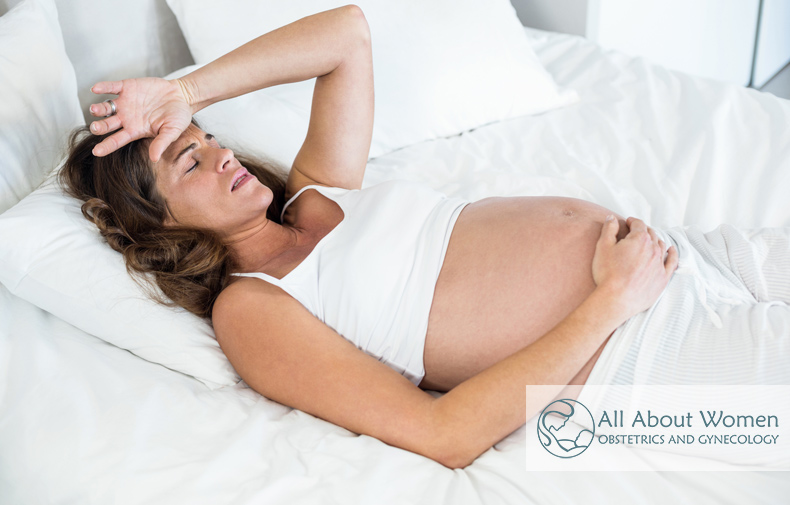
There has been a lot of added stress on most people these past few months with the outbreak of COVID-19. If you’re pregnant and trying to navigate a global pandemic, you’re probably at your max.
So, that may have you wondering:
Can stress cause a miscarriage?
To be honest, there are some conflicting views on the answer to this question. Some doctors, scientists and medical professionals believe stress hasn’t been proven to cause miscarriages, but others feel its effects are often overlooked.
The National Center for Biotechnology Information (NCBI) brought together data from 8 different studies to analyze the connection between miscarriage and stress. What they found was that stress does in fact play a role in some miscarriages, especially prior psychological stress.
These studies found that your risk of miscarriage could increase by up to 42 percent if you have high stress levels.
However, there have been other studies that have either found mixed results or that stress does not cause miscarriage. One of the difficult factors to consider with stress and miscarriage is that you can’t put a specific number on a person’s stress level. Stress affects each person differently. What might be “high” stress for one person, may be low or normal for another.
Stress is somewhat subjective and therefore hard to measure.
How to lower stress during pregnancy (7 tips)
Even though doctors and scientists aren’t entirely sure about the true effects of stress on pregnancy, everyone can agree that too much stress does cause problems in your own body and adds stress to your baby too (even if the pregnancy doesn’t end in miscarriage).
If you’re feeling overly stressed or anxious during your pregnancy, try one or all of these tips to help you relax:
- Eat healthy and often.
- Take a walk or do some light yoga.
- Get as much sleep and rest as possible.
- Don’t feel bad saying “no” or asking for help.
- Keep a journal.
- Cut out unnecessary responsibilities or activities.
- Talk to your doctor.
Don’t be afraid to admit to family or to your doctor that you’re feeling overwhelmed, stressed or anxious. These are common emotions during pregnancy. You’re not helping yourself or your baby by keeping it to yourself.
Common causes of miscarriage
The most common cause of miscarriage is a chromosomal abnormality, so in that situation, there is nothing you can do to prevent it. The embryo simply cannot develop normally because of the abnormality. Often, this problem causes such an early miscarriage that many women don’t even know they’re pregnant.
Some other causes can be prevented with lifestyle or dietary changes. Behaviors like smoking and substance abuse, as well as health conditions such as infections, untreated STDs, and weight problems (over or underweight), can all raise or reduce your risk of a miscarriage.
Talk to your doctor about your stress
If you’re feeling overly stressed or anxious right now, you’re not alone. Talk to your obstetrician right away so you can figure out the best way to manage and lower your stress.


